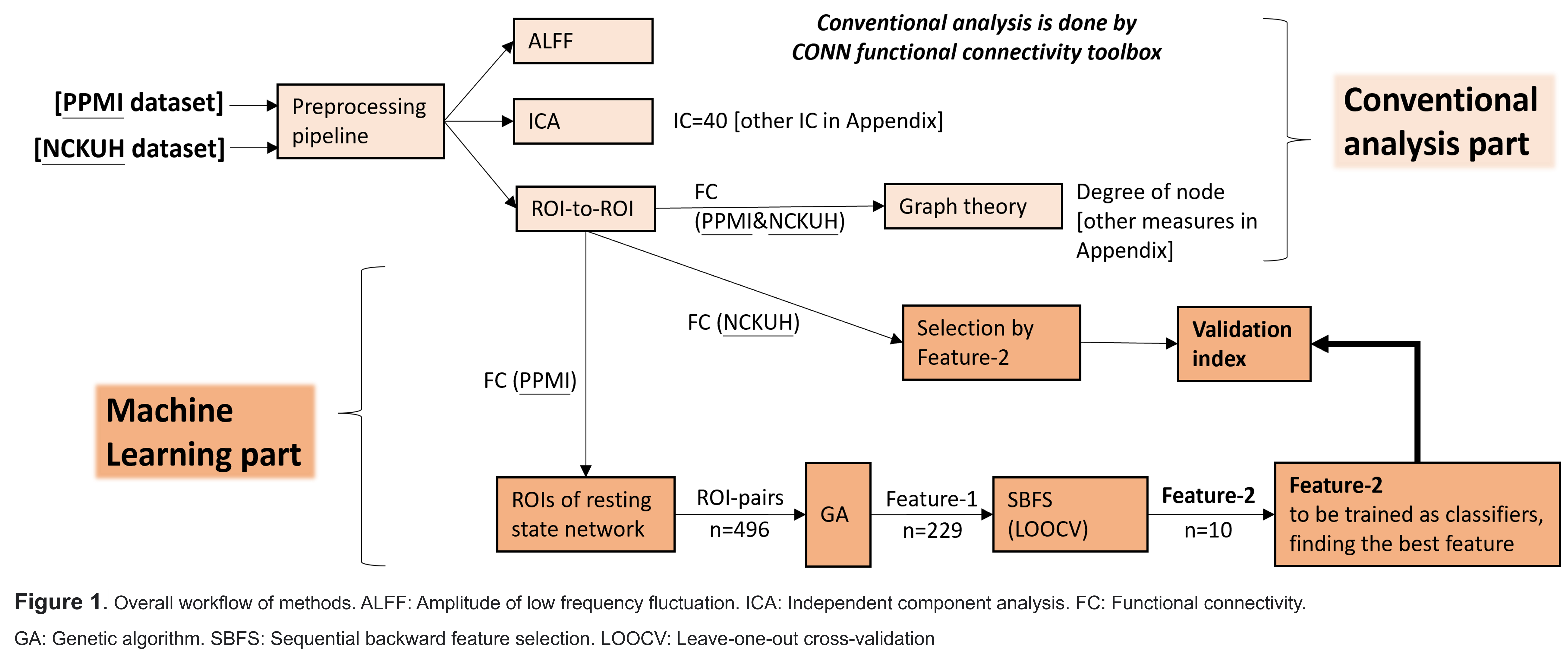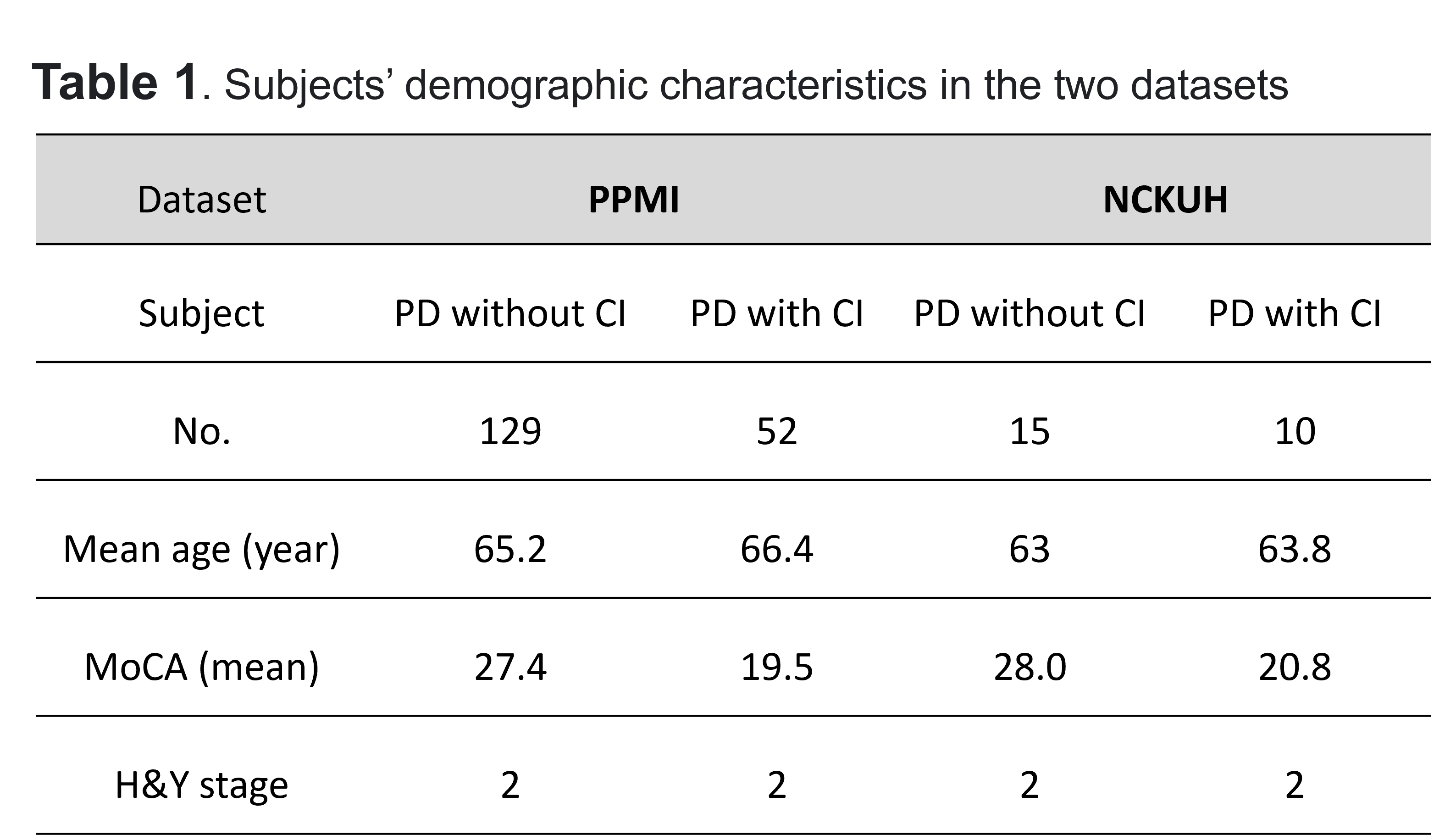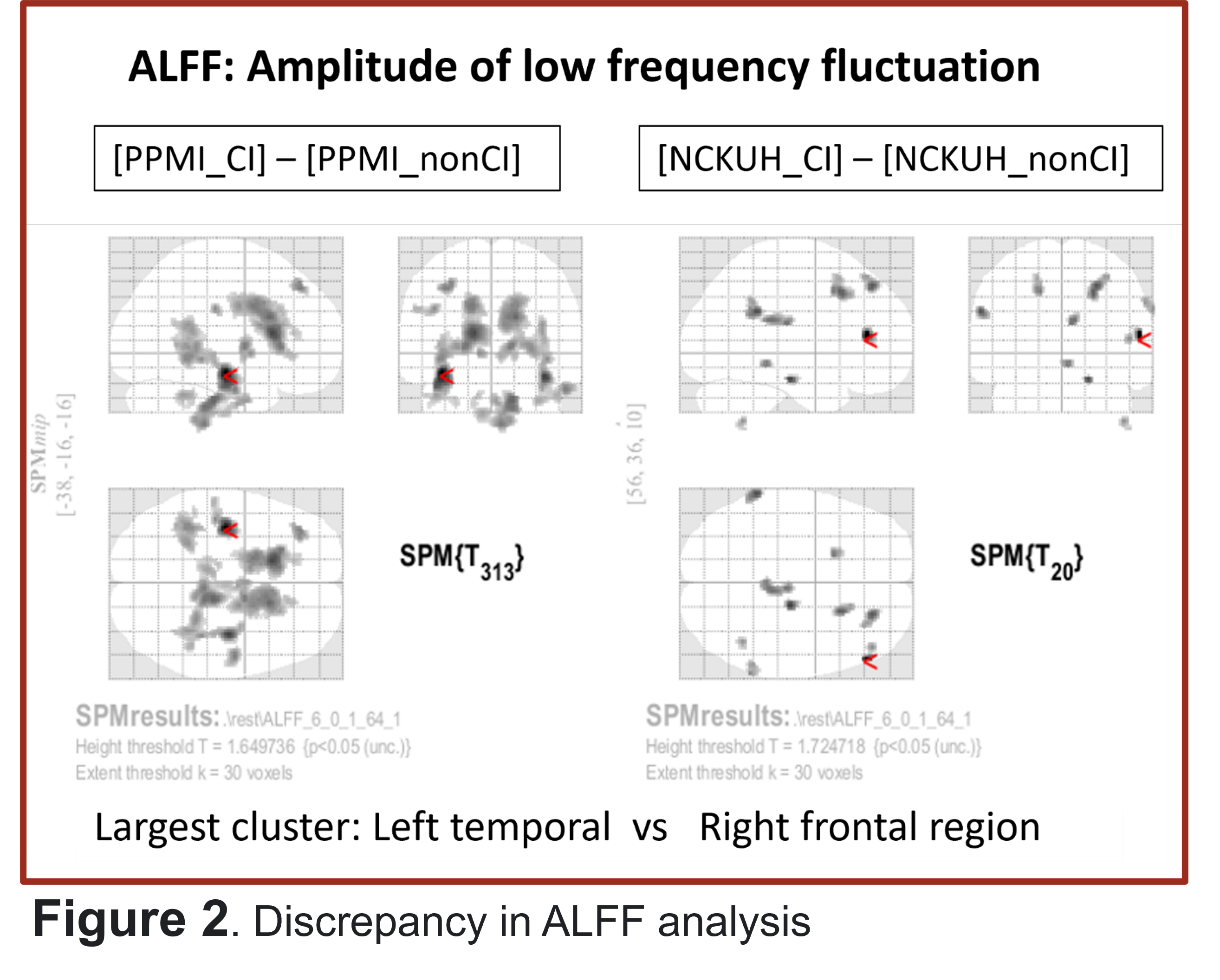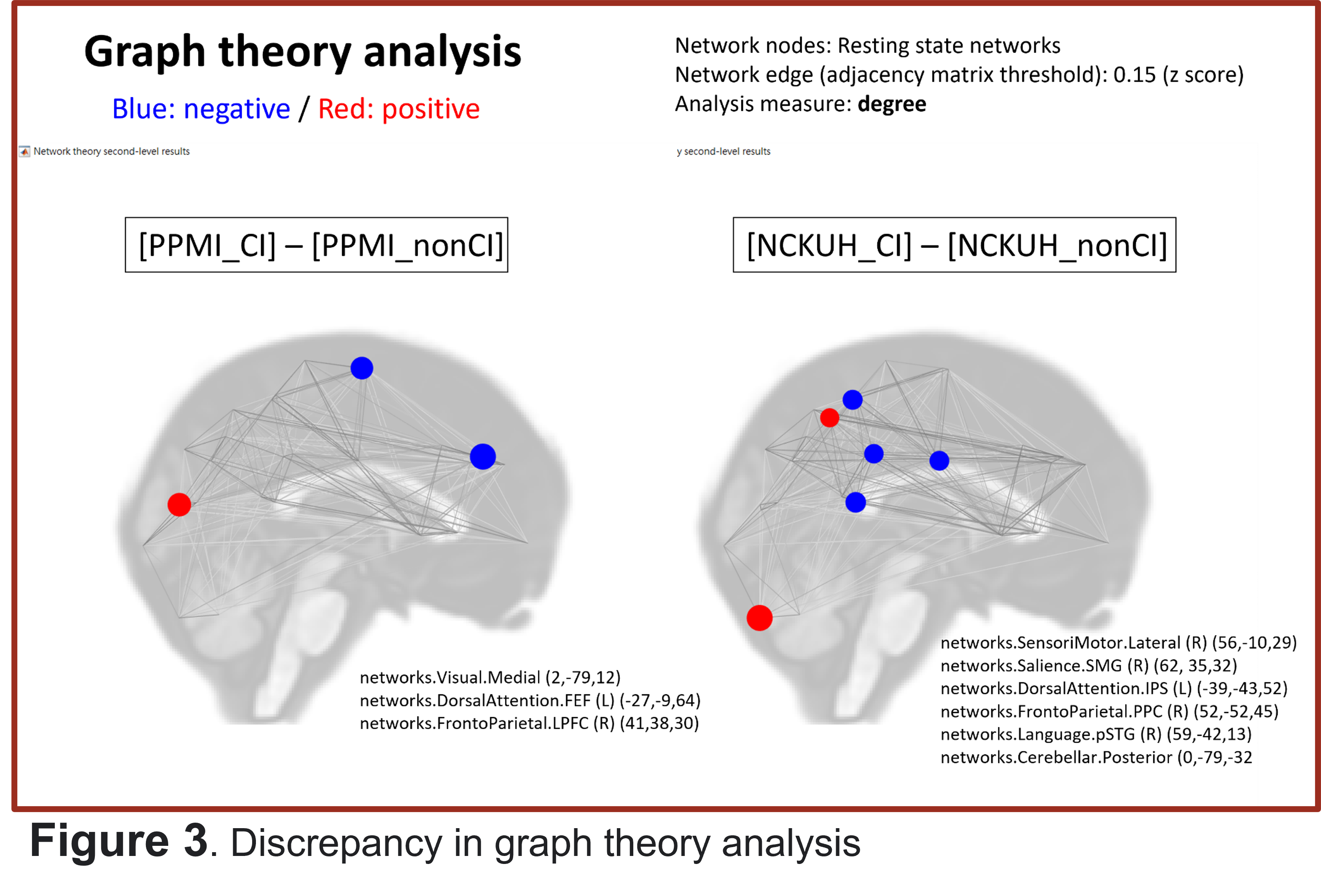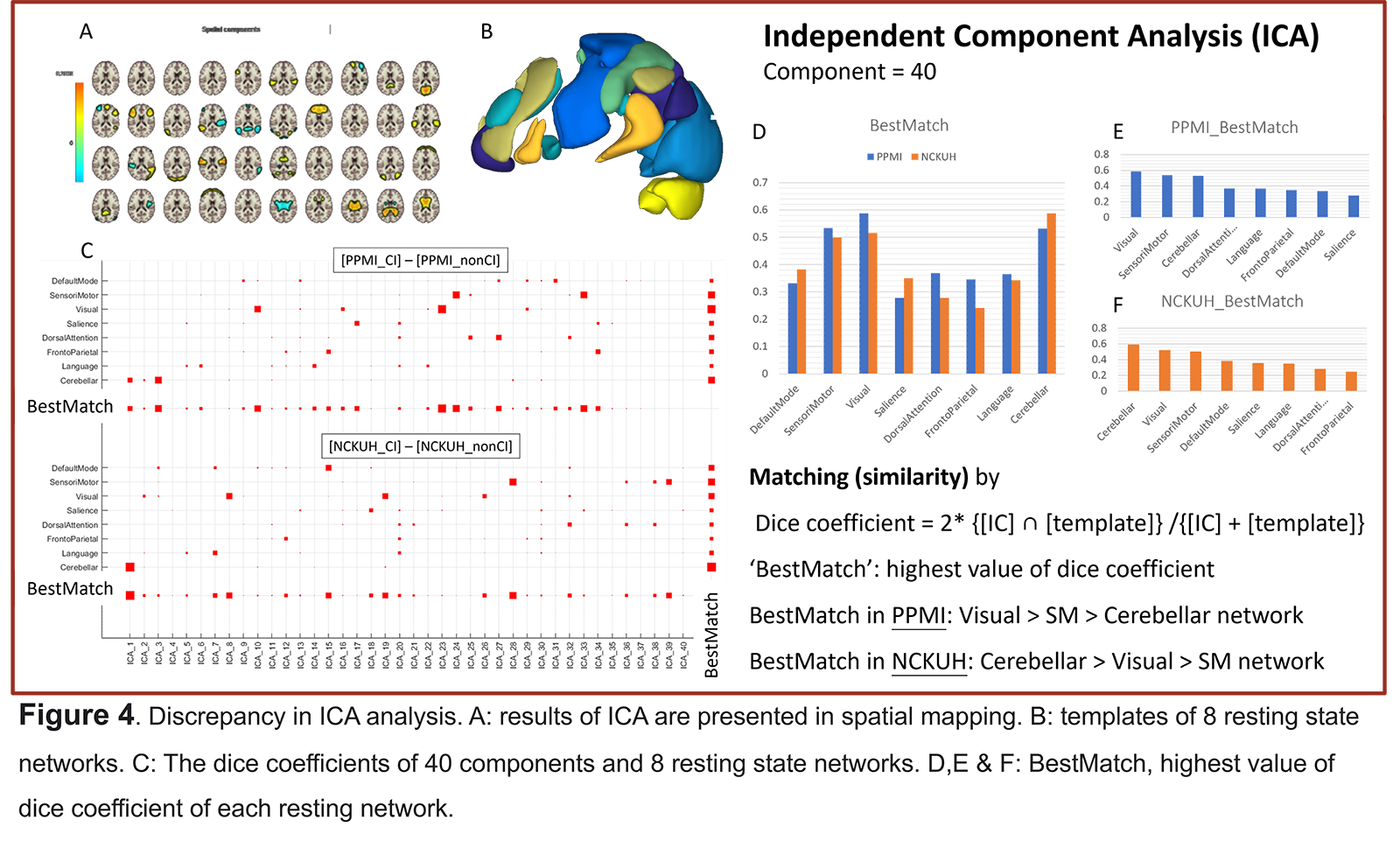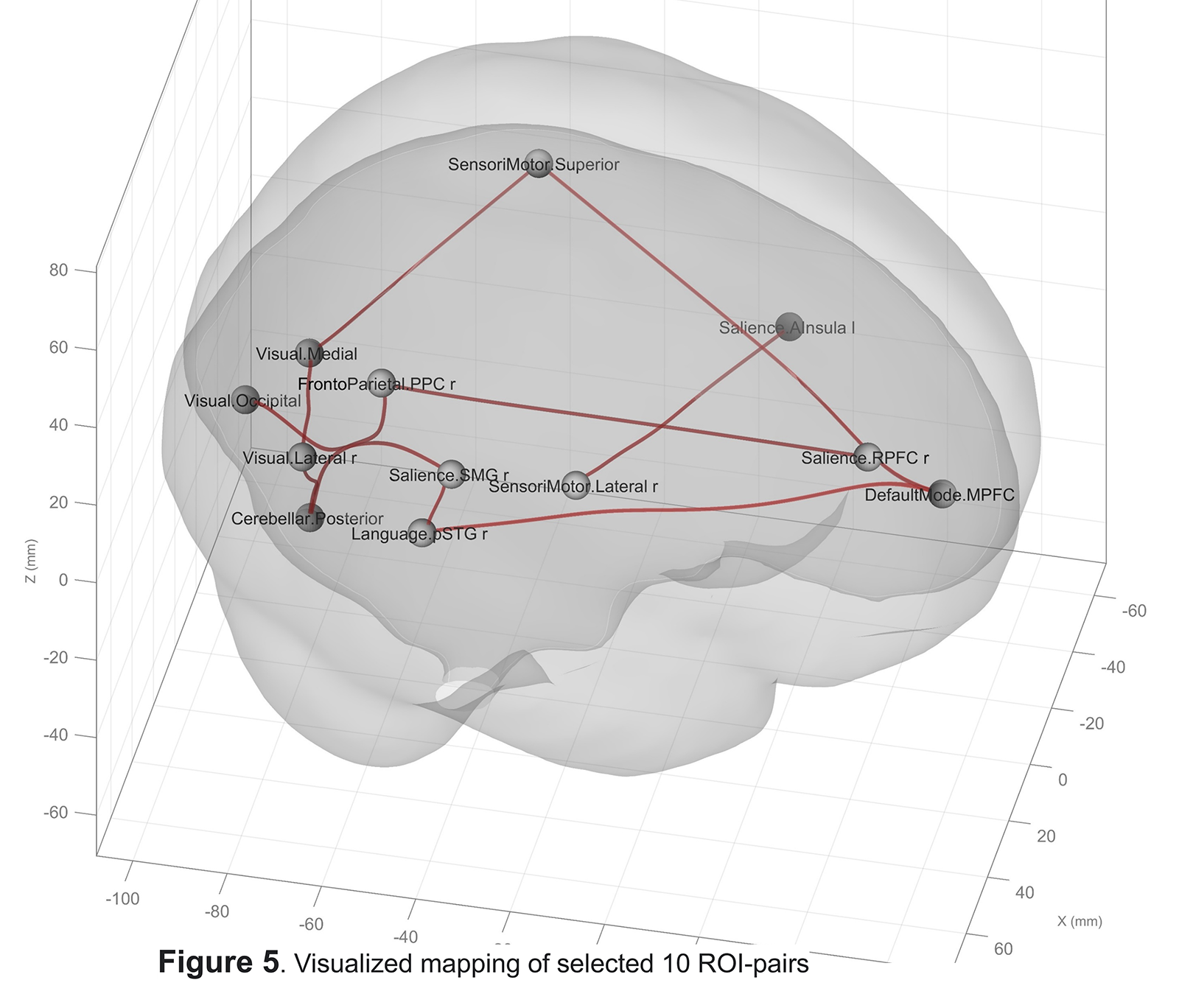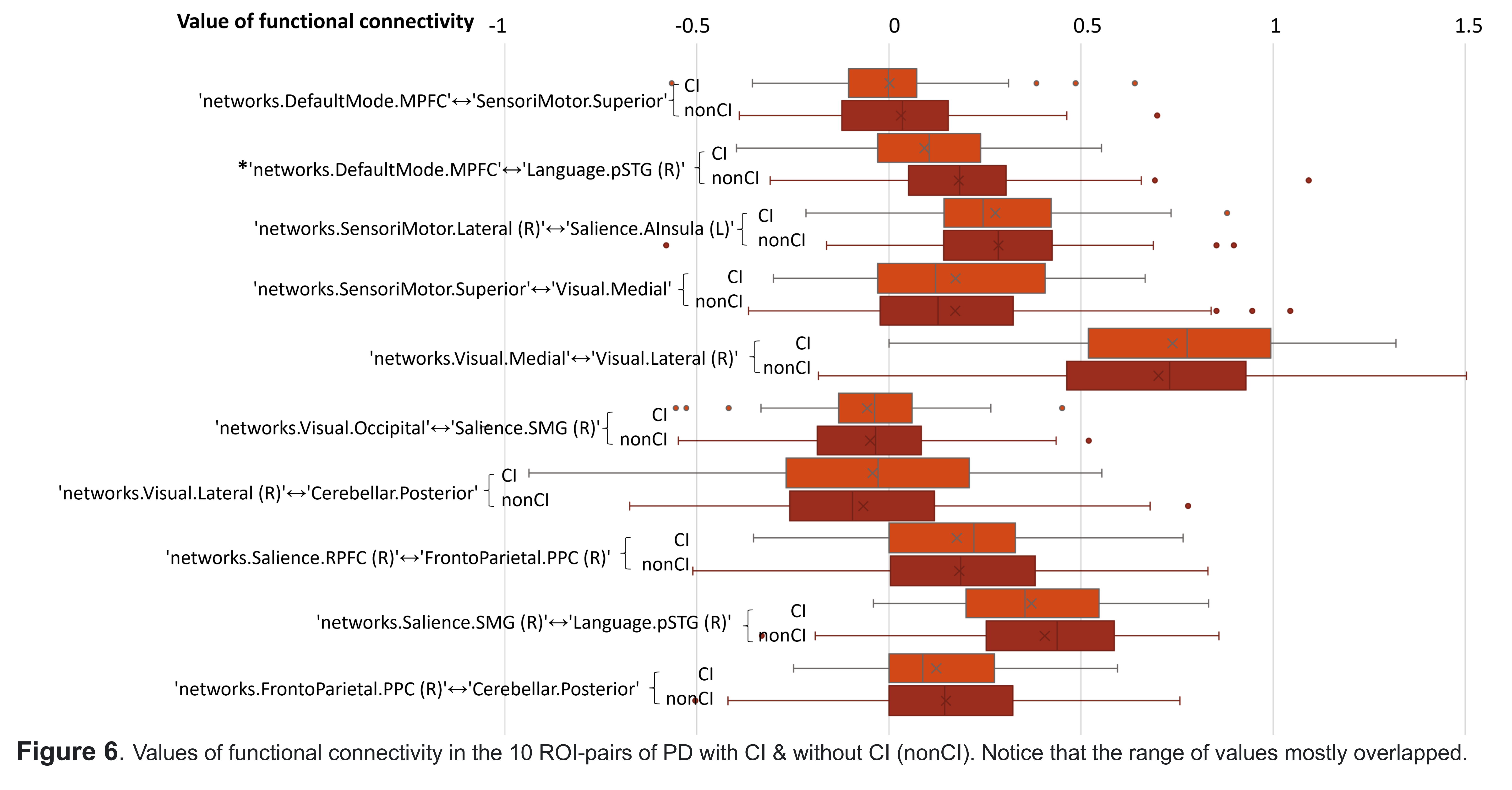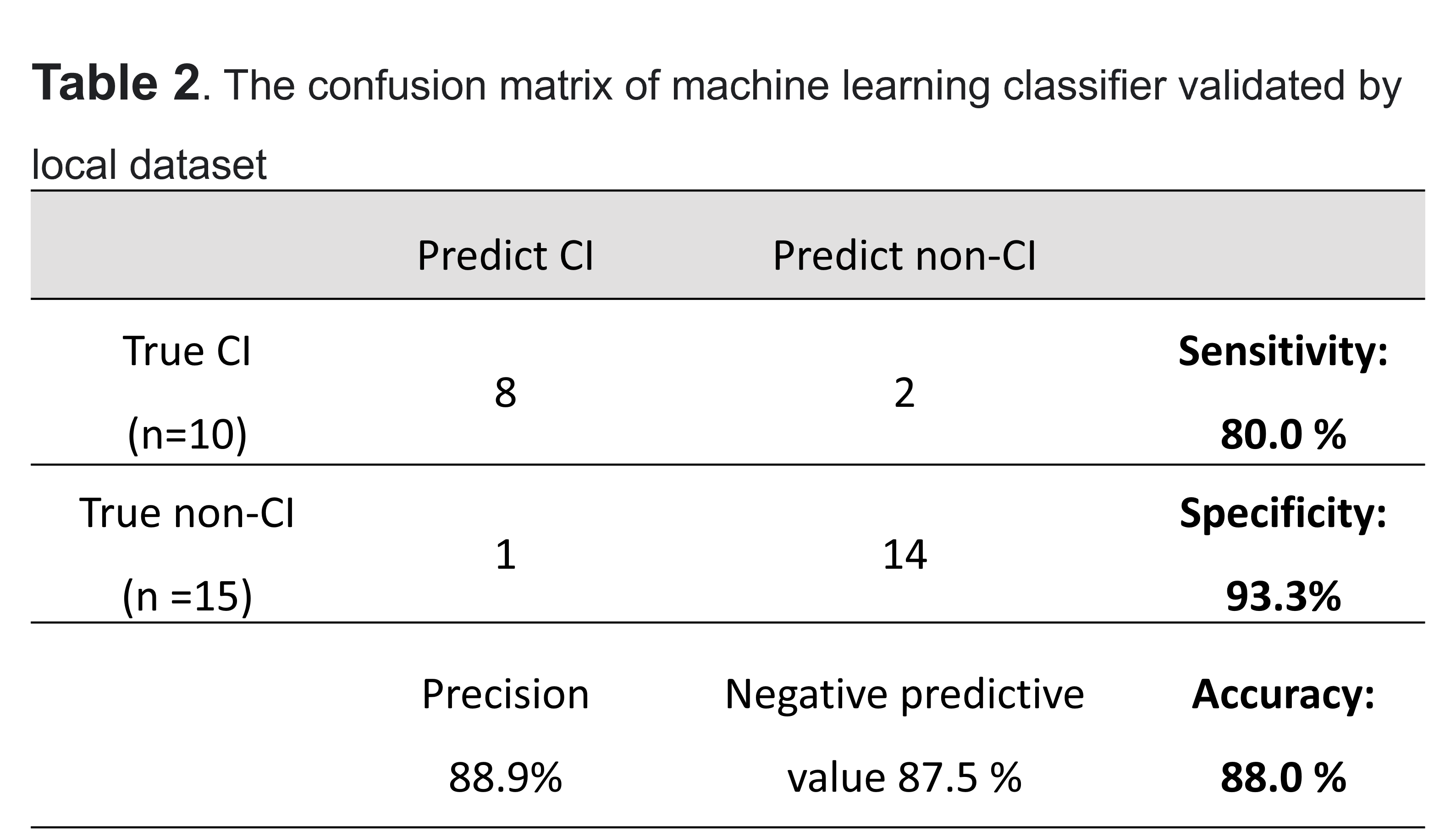Category: Parkinson's Disease: Neuroimaging
Objective: To obtain common features of Parkinson’s disease (PD) with cognitive impairment (CI) in resting-state functional MRI (rs-fMRI) from cross-institution datasets by adopting machine learning.
Background: Numerous researches explored CI in PD by rs-fMRI. However, the results were conflicting and diversified [1-3]. Using linear analysis in conventional approaches might be a big factor.
Method: Images of PD subjects were obtained from an online dataset of Parkinson’s Progression Markers Initiative (PPMI) and a local dataset of National Cheng Kung University Hospital (NCKUH), Taiwan. In each dataset, subjects were divided into 2 groups, that with and that without CI. Raw images were first preprocessed by the same pipeline. Then, group comparison in each dataset were performed through conventional analysis. Second, in machine learning part, online dataset served as a training dataset and was feature-selected by a 2-steps approach: pre-selection by genetic algorithm (Feature1) and then leave-one-out sequential selection by decision tree (Feature2). The selected features were used to classify the two groups. Local dataset served as a test data to validate the classification by Feature2 [figure1].
Results: Of PD subjects (mean age 64, H&Y stage 2), 181 (52 with CI) were from online dataset and 25 (10 with CI) were from local dataset [table1]. Inconsistency was found in conventional analysis [figure2-4]. In machine learning part, from online dataset the initial 496 region-of-interest (ROI) pairs of functional connectivity belonging to the resting-state networks went through feature selection. Feature1 contained 229 ROI-pairs and the accuracy of classification was 0.83. Then sequential selection from Feature1 yielded 10 ROI-pairs as Feature2 [figure5-6]. The ROIs in Feature2 included both cortical and cerebellar regions. The accuracy of classification by Feature2 was 0.92. Finally, a classifier trained by Feautre2 was tested by using local dataset and showed an accuracy of 0.88, sensitivity of 0.80 and specificity of 0.93 [table2].
Conclusion: Machine learning provided multi-step approaches to overcome the difficulty by conventional analysis. It not only promotes clinical utility of rs-fMRI from online dataset to local dataset but also reinforces the potential role of cerebellum in CI of PD [4].
References: 1. Baggio, H.C., et al., Cognitive impairment and resting-state network connectivity in Parkinson’s disease. Hum Brain Mapp, 2015. 36(1): p. 199-212.
2. Lang, S., et al., Network basis of the dysexecutive and posterior cortical cognitive profiles in Parkinson’s disease. Mov Disord, 2019. 34(6): p. 893-902.
3. Wolters, A.F., et al., Resting-state fMRI in Parkinson’s disease patients with cognitive impairment: A meta-analysis. Parkinsonism Relat Disord, 2019. 62: p. 16-27.
4. Maiti, B., et al., Cognitive correlates of cerebellar resting-state functional connectivity in Parkinson disease. Neurology, 2020. 94(4): p. e384-e396.
To cite this abstract in AMA style:
CY. Chien, TY. Lin, TL. Lee, CCK. Lin. Machine learning selects common fMRI features of cognitive impairment in Parkinson’s disease from cross-institution datasets [abstract]. Mov Disord. 2023; 38 (suppl 1). https://www.mdsabstracts.org/abstract/machine-learning-selects-common-fmri-features-of-cognitive-impairment-in-parkinsons-disease-from-cross-institution-datasets/. Accessed July 1, 2025.« Back to 2023 International Congress
MDS Abstracts - https://www.mdsabstracts.org/abstract/machine-learning-selects-common-fmri-features-of-cognitive-impairment-in-parkinsons-disease-from-cross-institution-datasets/

